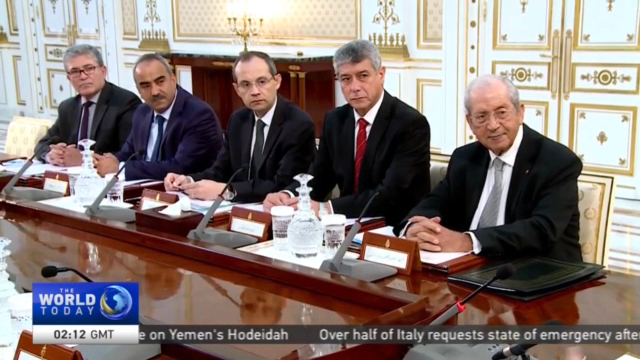
11:22, 07-Nov-2018
Tunisia Security: President extends state of emergency for another month
Updated
10:49, 10-Nov-2018
02:47

The Tunisian president has extended the country's state of emergency by another month. Last week, a woman blew herself up in the capital, injuring 15 policemen and five civilians. However, Tunisians have mixed reactions to the government's decision, as CGTN's Adnen Chaouachi reports.
After meeting with the High Security Council, Tunisian President Beji Caid Essebsi has extended the country's state of emergency.
It's been in place since 2015, following terror attacks at the Bardo Museum and a beach resort in Sousse. Three years later, authorities say maintaining the state of emergency is a necessary measure.
ZIED LADHARI DEVELOPMENT & INVESTMENT MINISTER, TUNISIA "It is the responsibility of the state to guarantee security. The economy won't improve amid turmoil and terror threats."
Many members of parliament agree the measure is vital to the stability of the North African state.
KARIM HELALI MEMBER OF PARLIAMENT, LEGISLATION COMMISSION, TUNISIA "The state of emergency must last until the next legislative and presidential elections in 2019. The latest suicide bombing in downtown Tunis proves the security situation is still fragile."
However, a group of opposition MPs has denounced the decision. They've accused Prime Minister Youssef Chahed of using the state of emergency to arrest businessmen in an alleged crackdown on corruption.
SAMIA ABBOU MEMBER OF PARLIAMENT, TUNISIA "The premier has arrested his main rivals and the businessmen who finance the opposition. The post-2011 state of emergency was never meant to silence dissent and empower authorities."
The Tunisian Observatory of Rights and Freedoms has also condemned the move.
The measures include border controls that restrict the movement of 23-thousand citizens.
MALEK BEN OMAR LAWYER, OBSERVATORY OF RIGHTS AND FREEDOMS "The travel bans are unconstitutional. It is a misinterpretation of the state of emergency. The Interior Ministry has imposed these measures in a discriminatory manner without providing justification or obtaining a court order. The measures have negatively affected individuals' livelihoods and have resulted in arbitrary arrests and short-term detentions."
Since 2011, thousands of Tunisians have joined terrorist organisations - including ISIL in Syria and Iraq.
ADNEN CHAOUACHI TUNIS, TUNISIA "Security experts assert that authorities need to maintain the state of emergency to foil attempted attacks and arrest ISIL members who've entered the country from Libya. According to the Ministry of Justice, at least 1300 people have been arrested on terror charges since 2013. AC, CGTN, T, T."

SITEMAP
Copyright © 2018 CGTN. Beijing ICP prepared NO.16065310-3
Copyright © 2018 CGTN. Beijing ICP prepared NO.16065310-3